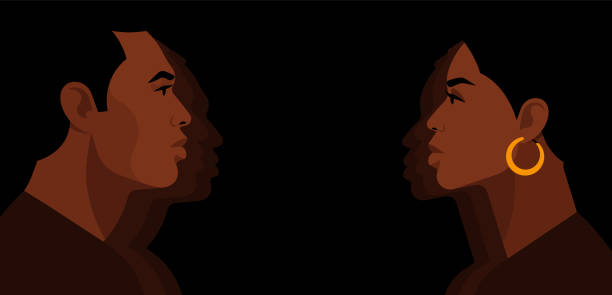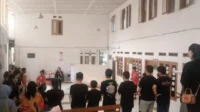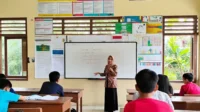Do you know why racism is always directed at black people? As we know, racism is a phenomenon that highlights the discrimination, inequality, and stereotyping often experienced by individuals with darker skin color.
Anti-black tropes, racial hierarchies, and negative stereotypes that make them strangers in their own place, for example, they feel unfairly made to other individuals and they are shunned and even insulted by their surroundings.
In another sense racism is a prejudice or doctrine that states that biological differences in the human race determine the success of cultures or individuals that one race is superior and has the power to dominate other races.
Actually, racism does not only include skin but there are other things, such as ethnicity, religion, race, intergroup, and even culture. However, often people always assume that racism leads to skin color, such as anti-black racism.
Anti-black racism is a form of racism that targets black people and their resistance to such oppression (Benjamin, 2011). Both in society and in institutions, black people are subjected to oppression in the form of anti-black racism caused by anti-black attitudes in society.
It is important to fight racism against black people. This does not only happen in the intellectual realm, but is understood in practice.
Anti-black racism does not mean only racial conflicts that can be resolved through organized political struggle and demanding reparations from the state and society. On the other hand, anti-blackness refers to the difference between blackness and social or cultural respectability.
The goal of anti-blackness theory is not to propose solutions to racial disparities, but to better understand the black condition in terms of the humiliation and acceptance of violence against black people (Dumas, 2016).
There are several problems that occur to African-Americans regarding the politics of the United States government under the presidency of Donald Trump, which is still thick with racism in granting rights and inequality, such as not giving African-Americans the opportunity to occupy executive cabinet seats, harassing women’s senate rights, and only choosing one African-American to become his cabinet minister.
In short, African-Americans are treated unfairly in the United States under the presidency of Donald Trump. Other problems that occur in Indonesia itself such as there is an association and one of the people comes from the eastern region who tends to have darker skin, then when in the association it is often used as an insult or ridicule that hides behind the word joke.
It can impact the victim to be insecure, become afraid to socialize, uncomfortable to be in the community, and can even make the victim depressed.
To provide effective support to victims or those experiencing discrimination/ racism, we can be a good listener for them, convey empathy and understand their feelings, advocate for their rights, and validate their experiences so that they can rise from adversity.
Overcoming racism must be sustained to achieve the desired impact, because just proving my injustice is not enough, people must have an awareness of how unfair they are in overcoming anti-black racism (Soltani, 2017).
Penulis: Dinda Martalya
Mahasiswa Psikologi Universitas Pendidikan Indonesia
Editor: Ika Ayuni Lestari
Bahasa: Rahmat Al Kafi
Ikuti berita terbaru di Google News
Daftar Pustaka
Benjamin, A. (2007). Doing anti-oppressive social work: The importance of resistance, history and strategy. Doing anti-oppressive practice, 212-217.
Dumas, M. J. (2016). Against the dark: Antiblackness in education policy and discourse. Theory Into Practice, 55(1), 11-19.
Grosfoguel, R. (2016). What is racism? Journal of World-Systems Research, 22(1), 9-15, 1076-156X doi: https://doi.org/10.5195/jwsr.2016.609
Lewis, J. A., & Neville, H. A. (2015). Construction and initial validation of the Gendered Racial Microaggressions Scale for Black women. Journal of Counseling Psychology, 62(2), 289–302, 0022-0167 doi: https://doi.org/10.1037/cou0000062
Lowe, S. M., Okubo, Y., & Reilly, M. F. (2012). A qualitative inquiry into racism, trauma, and coping: Implications for supporting victims of racism. Professional Psychology: Research and Practice, 43(3), 190.
Pieterse, A. L., Todd, N. R., Neville, H. A., & Carter, R. T. (2012). Perceived racism and mental health among Black American adults: a meta-analytic review. Journal of counseling psychology, 59(1), 1.
Simboh, G. F., Haqqi, H., & Alchatib, S. R. (2023). Dampak Rasisme Terhadap Keturunan Afrika-Amerika di Politik Pemerintahan Amerika Serikat pada Tahun 2016-2020. Jurnal Alternatif-Jurnal Ilmu Hubungan Internasional, 14(2).
Soltani, A. (2017). Racism in the Canadian imagination. In New Framings on Anti-Racism and Resistance (pp. 17-27). Brill.















